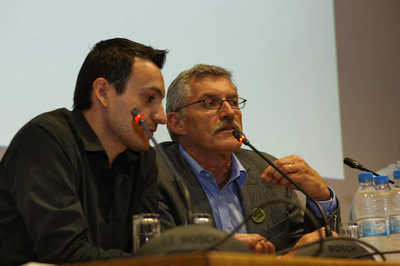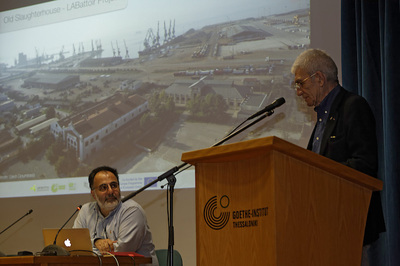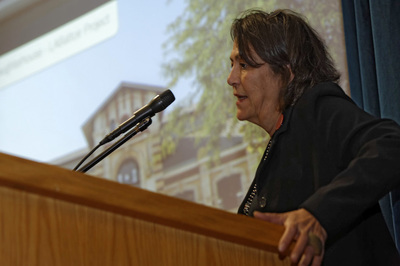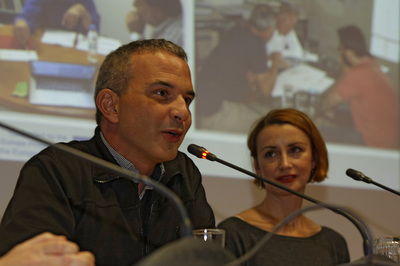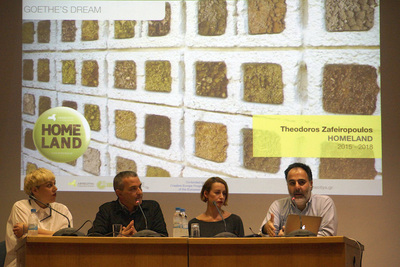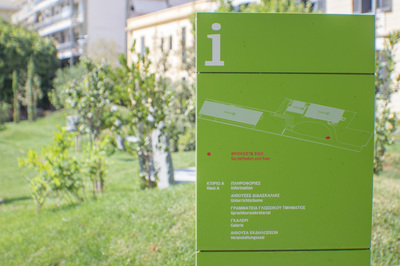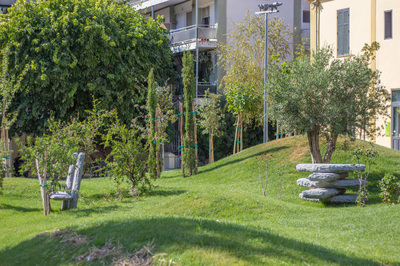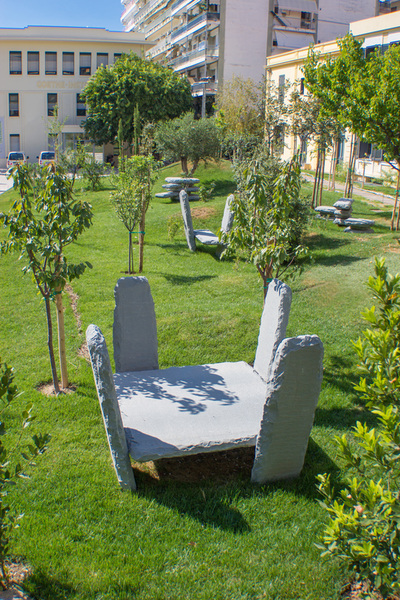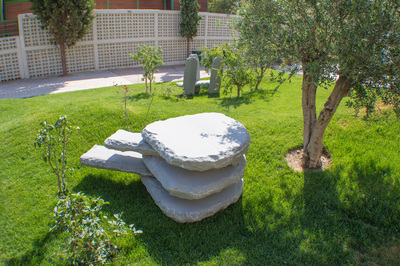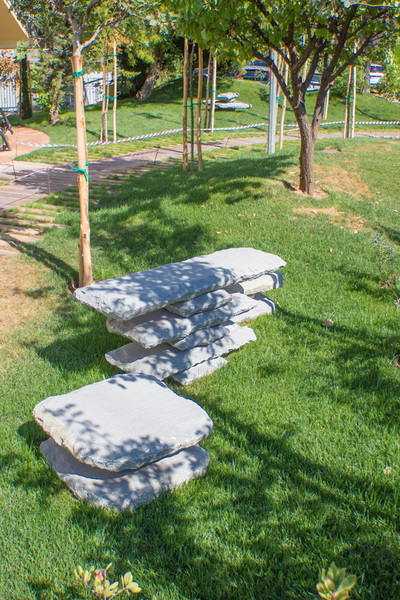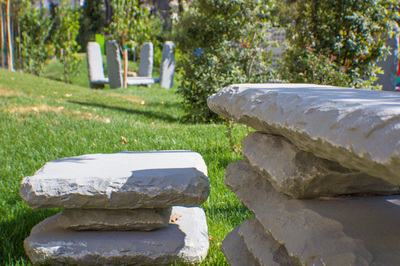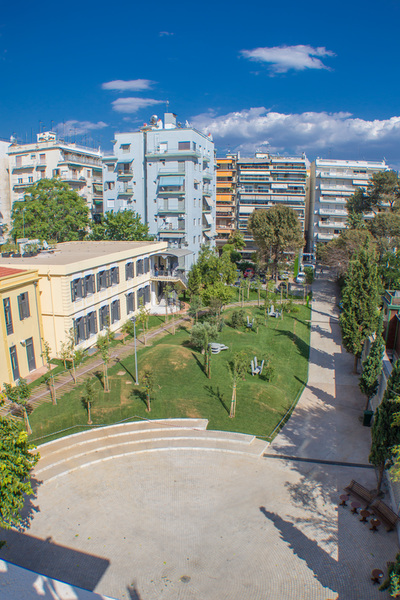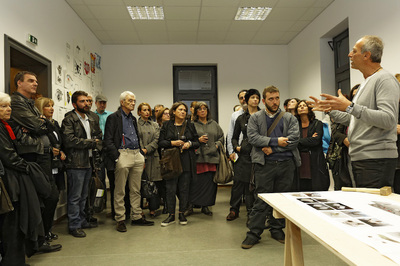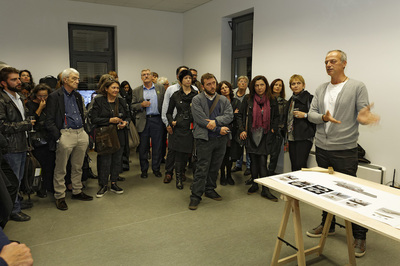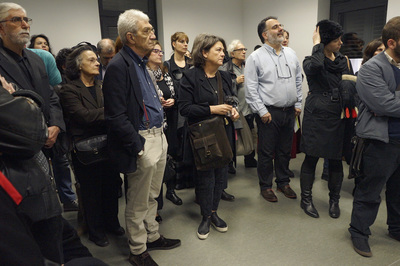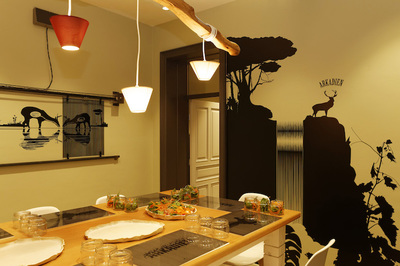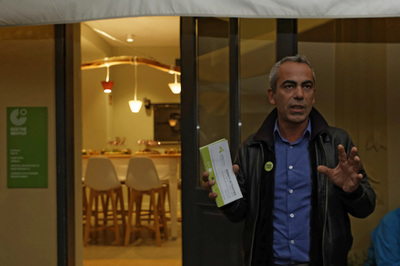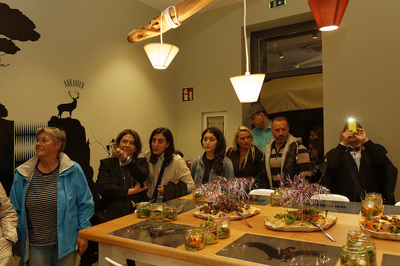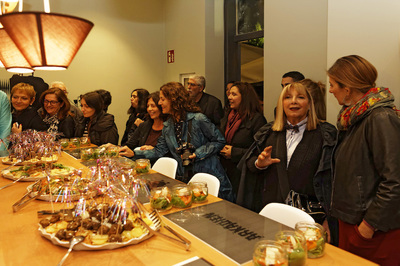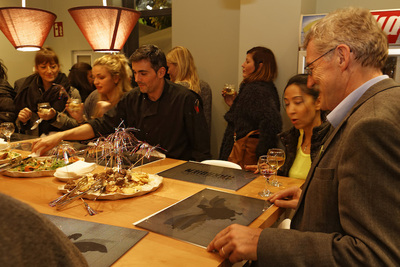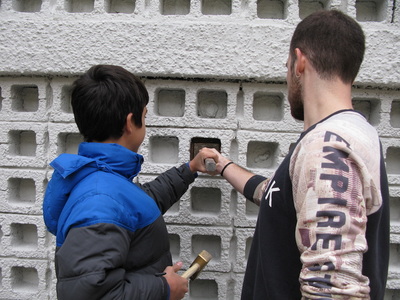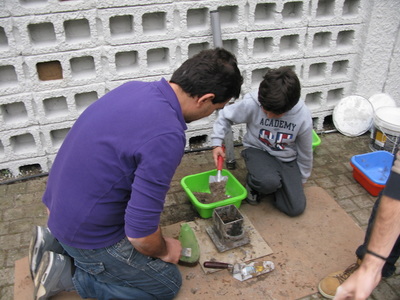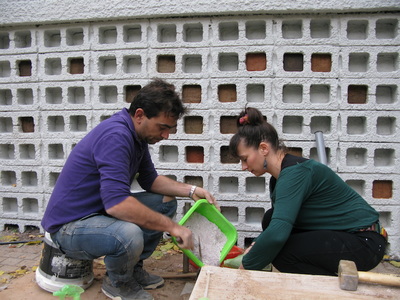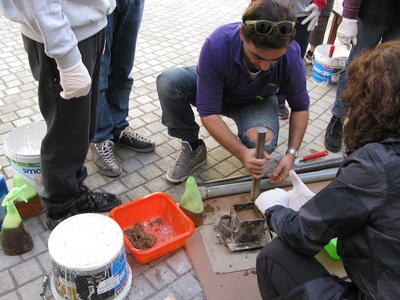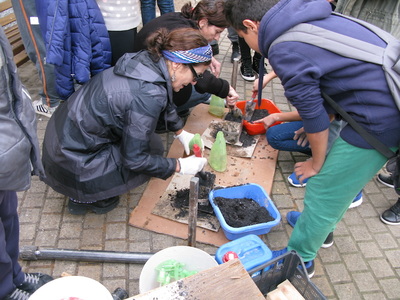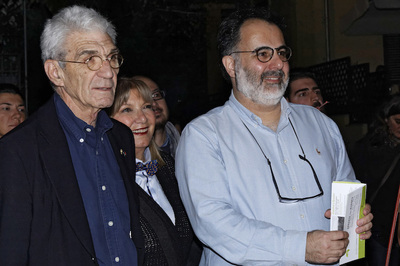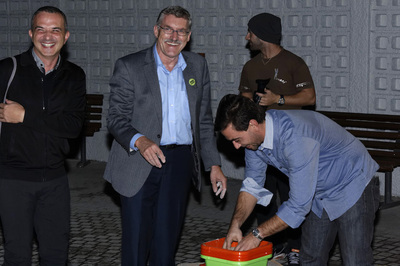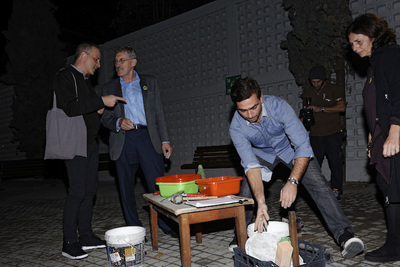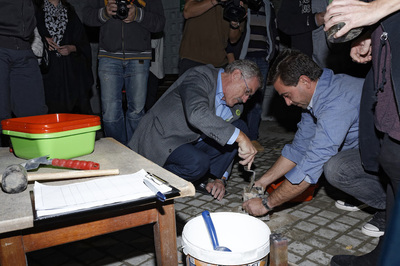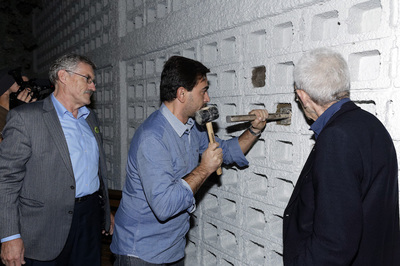Goethe's dream |
#agency
|
Launch: 23.11.2015, 18.30, Goethe-Institut Thessaloniki
Goethe’s Dream is the first large-scale project by the ARTECITYA AGENCY. It includes three works – commissions to artists Giorgos Gyparakis, Alexandros Psychoulis and Theodoros Zafeiropoulos, who were invited to re-design the outdoors, public spaces of Goethe-Institut Thessaloniki’s building complex. The artists propose three contemporary artistic practices that, based on a critical appropriation of artistic traditions, establish models of reaction against the social stagnation of art. The three works –which, to a greater or lesser extent, reference the arcadian utopia, a popular theme in art since antiquity and a source of inspiration for literary, philosophical and artistic movements– do not only address the aesthetics of self-reflection, but also create ways of wide social interaction and practices of everyday human life.
Consulting Curator: Sotirios Bahtsetzis
Architects: PLAN EE - Michalis Athanassiades and Dr. Thomas Greve
Consulting Curator: Sotirios Bahtsetzis
Architects: PLAN EE - Michalis Athanassiades and Dr. Thomas Greve
Giorgos Gyparakis / points of view
Giorgos Gyparakis redesigns the outdoors forecourt of Goethe-Institut Thessaloniki’s building complex, transforming it into a garden that is truly experienced by the visitors and that creates the conditions for the public to interact with it. The goal is not to design a garden that mimics the natural landscape; rather, to create the circumstances so that this garden grows naturally, as time goes by, around three basic, functional axes: main route-pathway, square, seating micro-environments. The “pathway” that leads to the buildings is encompassed by the natural environment through its materiality and “free” form. Towards its end, the boundaries are lost and the street blends with the flora around it. The “square” is defined by the presence of a plane tree, found in almost all village squares around the Greek periphery. The “seating micro-environments” are installed at the naturally formed pits resulting from the terrain’s reformation into a low-hilled relief. The rocky seating spots within these micro-environments have been designed, so that they provide unhindered views to the garden. Thus, those sitting there can contemplate privately, even while they engage in dialogue with others.
Alexandros psychoulis / arkadien
Alexandros Psychoulis turns Goethe-Institut Thessaloniki's café into a site of experience and a place of gathering for the institute's staff, students and visitors. The Arcadian archetype offers the paradigm for this imaginary, ideal place, identified with the concept of a content, carefree, happy life without constraints, close to nature. Using the optical illusion animation technique, without the interference of digital media, the installation transforms the café’s small and large indoors surfaces into moving images. At the same time, the services offered are perceived as a kind of choreographed ritual. Just as poets and authors throughout time –like Theocritus, Virgil, Cervantes, and Goethe– let themselves be seduced and carried away by their efforts to conquer eternity beyond real places, similarly, contemporary visitors let themselves be seduced and carried away by an ongoing installation-performance.
theodoros zafeiropoulos / homeland
The installation Homeland is an exhibition of a collection of soil (Land) samples. A great number of participants offer samples that they have collected from the place each one of them considers his/her country of origin, his/her homeland (Home). The samples, using the ancient rammed-earth technique, are molded and casted into the recesses of the wall that divides Goethe-Institut Thessaloniki and the Fοlklife and Ethnological Museum of Macedonia-Thrace, and remain there as permanent exhibits. The project’s central goal is to bring citizens of all social groups in contact with the primal and symbolic materiality of the soil (ground), to introduce them, through experiential workshops, to the process of earth-ramming and casting, and at the same time to create a website that will host the relevant information and data, functioning as a universal interactive communication channel (portal).
The project is an invitation to return to the idea of “homeland” as a variation to Arcadia, a place of peace and tranquility, and a return to the primordial. This invitation to engage with the geographical and geological history (affective geography), via the establishment of a universally open-ended sampling, captures the symbolic interaction of the participants with the memory of the place (human geography). The work, as multilevel crossroad of real and spiritual meetings, constitutes a geo-sociopolitical encounter and aims towards distilling the metaphysical meaning of soil and transfuse it from the ideological foundation of the theory of the masses to everyday human practices.
Visually, the soil’s heterogeneous color shades, condensed in the wall’s recesses, compose a gigantic mosaic in earth tones referencing Thessaloniki’s byzantine tradition. The wall’s transformation into a topographic map is used as a vehicle between the metaphysics of “dedication” and physical “mortal” substance, between the spiritual and the material. The archival activity does not aim to create an open-air installation offered to public view, but a multilevel aesthetic experience. It is also a toolbox for (social, ethnological, anthropological, geological) research, since the creation of a communication mechanism and a call for participants addressed to Goethe-Institut Thessaloniki’s collaborators, citizens, institutions and the city’s wider public activates a universal network related to the identity, origin and lineage of the offering/donation. The wall ceases to be a blind boundary and becomes a portal, a door to the world. The 4600 samples that will be gathered from the participants in conjunction with the additional digital material and the workshop experience make up an original material meta-object, which can constitute an open field for future research in a lot of areas of humanities and sciences.
The project is an invitation to return to the idea of “homeland” as a variation to Arcadia, a place of peace and tranquility, and a return to the primordial. This invitation to engage with the geographical and geological history (affective geography), via the establishment of a universally open-ended sampling, captures the symbolic interaction of the participants with the memory of the place (human geography). The work, as multilevel crossroad of real and spiritual meetings, constitutes a geo-sociopolitical encounter and aims towards distilling the metaphysical meaning of soil and transfuse it from the ideological foundation of the theory of the masses to everyday human practices.
Visually, the soil’s heterogeneous color shades, condensed in the wall’s recesses, compose a gigantic mosaic in earth tones referencing Thessaloniki’s byzantine tradition. The wall’s transformation into a topographic map is used as a vehicle between the metaphysics of “dedication” and physical “mortal” substance, between the spiritual and the material. The archival activity does not aim to create an open-air installation offered to public view, but a multilevel aesthetic experience. It is also a toolbox for (social, ethnological, anthropological, geological) research, since the creation of a communication mechanism and a call for participants addressed to Goethe-Institut Thessaloniki’s collaborators, citizens, institutions and the city’s wider public activates a universal network related to the identity, origin and lineage of the offering/donation. The wall ceases to be a blind boundary and becomes a portal, a door to the world. The 4600 samples that will be gathered from the participants in conjunction with the additional digital material and the workshop experience make up an original material meta-object, which can constitute an open field for future research in a lot of areas of humanities and sciences.
The workshops are realised by artists Fotini Kariotaki and Lea Kavadia.
They are addressed to members of the public and school visits.
Participation is free.
Appointment is required.
Please contact [email protected] to book an appointment.
For more information you can also visit the project website:
They are addressed to members of the public and school visits.
Participation is free.
Appointment is required.
Please contact [email protected] to book an appointment.
For more information you can also visit the project website:

